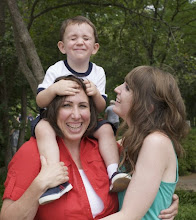Now for the logistics...
Over the course of the past fourteen months I have had a most intensive introduction to the Foreign Service. Because I have lived (and waited out) this process of becoming an FSO (Foreign Service Officer), I almost can't remember what it was like not to know how the "bidding process" works, or how how to go about studying for a case management exercise. However, I realize that most people aren't familiar with this process, how intense and time-consuming it is, or even what the role of the State Department is!
I thought it might be helpful if I addressed a few of the most common questions I get on a regular basis.
What the heck is a Foreign Service Officer and what do they do?
"Foreign Service Officers, or diplomats, are the front line professionals representing the Department of State at all US Embassies, consulates, and other diplomatic missions. They can be sent anywhere in the world, at any time, to serve the diplomatic needs of the United States. With representation in over 160 countries, the Department of State offers Foreign Service Officers unparalleled opportunities to serve their country."
- US Department of State Guide to the Foreign Service Officer Selection Process, 2009-2010
This basically means that I will be working in a United States Embassy in a foreign country. That country is called the "host country." It will be my job to learn the language, culture, economic and political structure of that country while I am living there. My co-workers will be other Foreign Service Officers (FSOs)who are American citizens, and Foreign Nationals who are people native to that country fulfilling other duties.
Ok, so what does that mean exactly on a day to day basis?
Well, that depends on which "career track" I have chosen.
So how many are there and which one did you choose?
There are five career tracks you can choose in the Foreign Service.
1. Consular
2. Economic
3. Political
4. Management
5. Public Diplomacy
I chose the Public Diplomacy track. It's important to note that I chose this track last June (2008) when I first registered for the exam. Once you choose your track it is very difficult to change it.
Also, note that no matter which career track you have chosen most officers will spend their first 2-3 years doing consular work. This includes visa/immigration work.
So, what is a Public Diplomacy Officer?
"As a Public Diplomacy Officer, I will broaden understanding of American values and policies. I will explain the breadth of American foreign policies to ensure that our positions are understood and misrepresentations are corrected, in addition to:
-Communicating with and through a variety of media to promote U.S. interests overseas
-Managing cultural and information programs
-Explaining to foreign audiences how American history, values and traditions shape our foreign policy
-Coordinating various exchange programs to strengthen relationships that improve foreign insight into American society"
Wednesday, August 5, 2009
Subscribe to:
Post Comments (Atom)

Welcome to the FS!
ReplyDeleteI have added a link to your blog to my blogroll at http://lifeafterjerusalem.blogspot.com.